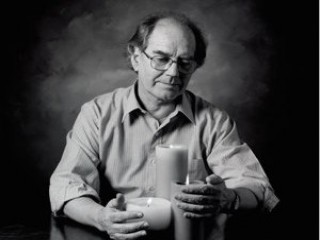
Adolfo Pérez Esquivel biography
Date of birth : 1931-11-26
Date of death : -
Birthplace : Buenos Aires, Argentina
Nationality : Argentine
Category : Arhitecture and Engineering
Last modified : 2010-10-05
Credited as : Architect and sculptor, pacifist, Nobel Peace Prize 1980
0 votes so far
Esquivel attended the Escuela Nacional de Bellas Artes and the Universidad Nacional de La Plata where he was trained as an architect and sculptor. He then was appointed professor of architecture. For 25 years, he taught in primary schools, secondary schools and at the university level. He has worked in a number of sculptural media.
Adolfo Esquivel's commitment to human rights sparked a coordinated campaign across Latin America and later, the world. Born in 1931 in Buenos Aires, Argentina, Mr. Esquivel showed an affinity for art and shapes. He later attended the Escuela National de Bellas Artes, where he studied sculpture and architecture. For 25 years, he sculpted, designed, and taught these subjects on every educational level. As Argentina's government became progressively more repressive, Mr. Esquivel became increasingly active, leading hunger strikes and founding El Servicio de Paz y Justicia (The Peace and Justice Service), a society committed to defending human rights through nonviolence. He relinquished his teaching position and began campaigning abroad, but he returned home after the 1976 coup of Jorge Videla. Under his leadership, El Servicio grew into a coordinated international effort to raise human rights awareness across Latin America. Mr. Esquivel then turned his sights to founding the UN's Human Rights Commission. For his efforts, he, along with dozens of clergy, was jailed and tortured for 14 months by members of Videla's regime. In 1980, the Nobel committee recognized his human rights work by awarding him the Nobel Peace Prize. He never ceased in his efforts, and he not only succeeded in coordinating the UN's commission, but he remains the worldwide chief of El Servicio, designing and shaping Latin America and the world for the rights of many.
Quotations
"To create this new society, we must present outstretched and friendly hands, without hatred and rancor, even as we show great determination and never waver in the defense of truth and justice. Because we know that we cannot sow seeds with clenched fists. To sow we must open our hands."
"I wonder what the engineers, technicians, and workers who make weapons all day long for killing their neighbor can possibly be thinking of. They're not working for a living; they're working for dying."
"For Christians, faith cannot be foreign to these problems; theology, then, was considered as a reflection of this faith and of the moral force of the Word, for the work of liberation from injustice and from sin, in its structural as well as personal dimension. Reflection is only a partial understanding of truth if it does not translate itself in practice into commitments to the common good and justice. Truth is not mere abstraction, but something to be done; and is only apprehended when this is realized. It is this concrete work, which Christians must undertake in great numbers, that will lead to the process of liberation of our people."
















